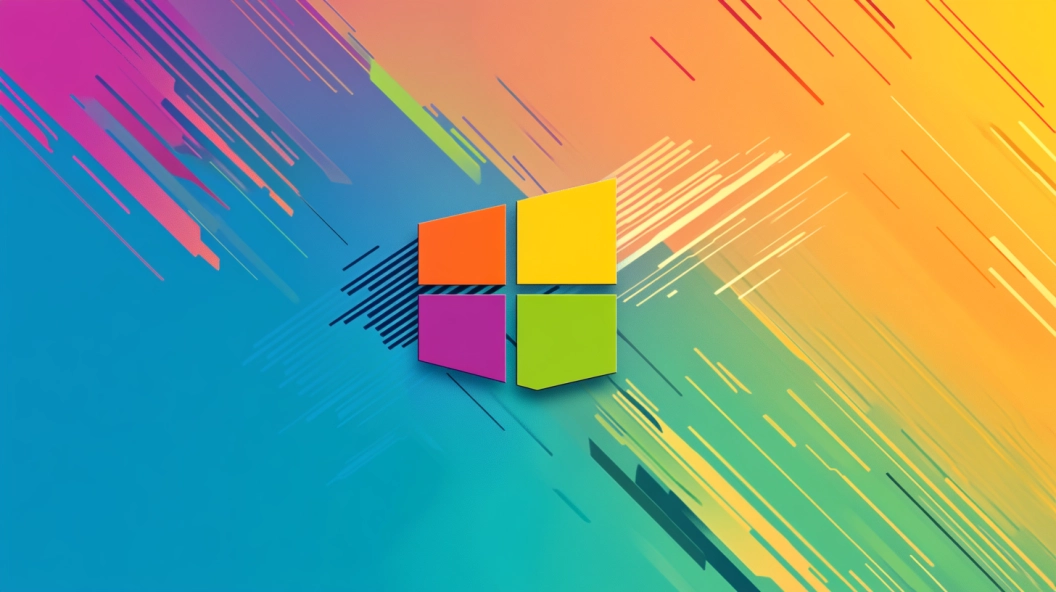The Role of Microsoft in Enhancing Cybersecurity for Businesses

Cybersecurity has become a critical concern for businesses worldwide. With cybercrime projected to cost companies an estimated $10.5 trillion annually by 2025, the stakes have never been higher. Small businesses, in particular, face significant challenges, with 43% of cyber attacks targeting them, yet only 14% feel prepared to defend themselves. In this landscape, Microsoft's Role in enhancing cybersecurity stands out. As a tech industry leader, Microsoft focuses on providing robust cybersecurity solutions, empowering businesses to safeguard their operations effectively.
Understanding Cybersecurity Challenges for Businesses
Common Threats Faced by Businesses
Malware and Ransomware
Businesses encounter various cyber threats, with malware and ransomware being among the most prevalent. Malware infiltrates systems to steal sensitive data or disrupt operations. Ransomware, a specific type of malware, encrypts files and demands payment for their release. These attacks often target businesses with insufficient security measures, exploiting vulnerabilities to gain unauthorized access.
Phishing Attacks
Phishing attacks deceive individuals into revealing confidential information, such as passwords or credit card numbers. Attackers often use emails that appear legitimate to trick recipients. Small businesses, lacking robust security protocols, frequently fall victim to these schemes. Phishing remains a significant threat due to its simplicity and effectiveness.
The Impact of Cyber Threats
Financial Losses
Cyber threats can lead to substantial financial losses. Businesses may face costs related to data recovery, legal fees, and regulatory fines. Ransomware attacks, in particular, demand hefty ransoms, which can cripple small enterprises. The financial burden extends beyond immediate expenses, affecting long-term profitability.
Reputational Damage
The impact of cyber threats extends to reputational damage. Customers lose trust in businesses that fail to protect their data. This loss of confidence can result in decreased sales and customer attrition. Companies must prioritize cybersecurity to maintain their reputation and ensure customer loyalty.
"Cybersecurity is not just about protecting data; it's about preserving trust."
Microsoft's Role in Cybersecurity
Security Frameworks and Policies
Zero Trust Model
Microsoft's Role in cybersecurity prominently features the Zero Trust Model. This approach assumes that threats can originate from both inside and outside the network. It requires verification of every request as if it comes from an uncontrolled network. The Zero Trust Model emphasizes the principle of "never trust, always verify." By implementing this model, Microsoft helps businesses unify their security strategies, breaking down silos between IT teams and systems. This unification enhances visibility and protection across the entire IT stack. The model also integrates compliance solutions, such as those in Microsoft Purview, which support compliance requirements with full transparency. These solutions allow for real-time visibility and automatic discovery of assets, ensuring that businesses can apply compliance mandates effectively.
Compliance Standards
Microsoft's Role extends to ensuring that businesses meet regulatory and compliance standards. The company's integrated compliance solutions provide comprehensive coverage with minimal tradeoffs. For instance, encrypted content can be transparently processed by eDiscovery or Data Loss Prevention (DLP) solutions. This capability reduces the burden of performing system-wide changes to adhere to new regulatory requirements. By leveraging Microsoft's compliance solutions, businesses can discover, govern, protect, and manage their data estates according to relevant regulations. This strategic approach not only meets current compliance needs but also prepares organizations for future regulatory challenges.
Integration with Existing Systems
Compatibility with Various Platforms
Microsoft's Role in cybersecurity includes ensuring compatibility with various platforms. Businesses often use a mix of legacy and modern solutions, which can lead to infrastructure gaps and increased operational costs. Microsoft's solutions are designed to work seamlessly across different platforms, reducing these gaps and ensuring smooth integration. This compatibility allows businesses to maintain their existing systems while enhancing their security posture. By providing solutions that integrate well with diverse platforms, Microsoft enables organizations to protect their data without disrupting their operations.
Seamless Updates
Seamless updates form a crucial part of Microsoft's Role in cybersecurity. Regular updates are essential to address evolving threats and vulnerabilities. Microsoft ensures that its security solutions receive timely updates, allowing businesses to stay protected against the latest cyber threats. These updates occur without causing significant disruptions to business operations. By prioritizing seamless updates, Microsoft helps organizations maintain a robust security posture, ensuring that their systems remain resilient against cyber attacks.
Key Microsoft Cybersecurity Tools

Microsoft Defender
Features and Capabilities
Microsoft Defender stands as a robust cybersecurity tool, offering comprehensive threat intelligence and real-time incident response. It provides in-depth analysis to detect and neutralize threats effectively. Users benefit from its ability to deliver threat intelligence, which helps in understanding the nature and source of cyber threats. Microsoft Defender also excels in executing threat intelligence, ensuring that businesses can respond promptly to incidents. This tool enhances security by providing a detailed overview of potential vulnerabilities and offering solutions to mitigate them.
Deployment Strategies
Deploying Microsoft Defender involves strategic planning to maximize its effectiveness. Businesses should assess their current security infrastructure to identify areas where Microsoft Defender can integrate seamlessly. Organizations can deploy it across various devices and platforms, ensuring consistent protection. Regular updates and monitoring are crucial to maintaining its efficacy. By implementing Microsoft Defender strategically, businesses can enhance their cybersecurity posture and reduce exposure to potential threats.
Azure Security Center
Cloud Security Solutions
Azure Security Center offers a comprehensive approach to cloud security. Integrated with Microsoft Purview, it helps organizations meet regulatory and compliance requirements. Azure Security Center enables the discovery, governance, protection, and management of an organization's entire data estate. This tool provides a unified security management system, allowing businesses to safeguard their cloud environments effectively. By leveraging Azure Security Center, organizations can ensure that their data remains secure and compliant with industry standards.
Monitoring and Alerts
Monitoring and alerts form a critical component of Azure Security Center. This tool continuously monitors cloud environments for potential threats and vulnerabilities. It provides real-time alerts, enabling businesses to respond swiftly to security incidents. Azure Security Center's monitoring capabilities ensure that organizations maintain a proactive approach to cybersecurity. By utilizing its alert system, businesses can address threats before they escalate, ensuring the integrity and security of their cloud infrastructure.
Implementation Strategies for Businesses
Assessing Security Needs
Risk Assessment
Businesses must conduct thorough risk assessments to identify potential vulnerabilities in their cybersecurity infrastructure. This process involves evaluating the current security measures and determining areas that require enhancement. By understanding the specific threats they face, companies can prioritize their resources effectively. According to a survey, *66% of businesses experienced a cyber attack in the past 12 months*, highlighting the urgent need for comprehensive risk assessments. Small to medium-sized enterprises, in particular, should focus on this step, as *43% of cyber attacks target them*.
Customizing Solutions
Once businesses have assessed their risks, they should customize cybersecurity solutions to address their unique needs. This customization ensures that security measures align with the organization's specific operational requirements. Companies can leverage Microsoft's tools to tailor their security strategies, integrating solutions like Microsoft Defender and Azure Security Center. By customizing these tools, businesses can enhance their protection against targeted attacks, which 69% of respondents noted are becoming more frequent.
Training and Awareness
Employee Training Programs
Employee training programs play a crucial role in strengthening a company's cybersecurity posture. These programs educate staff about potential threats and teach them how to recognize and respond to cyber attacks. Given that 70% of businesses fell victim to ransomware attacks in 2022, training employees to identify phishing attempts and suspicious activities becomes essential. Microsoft offers resources and tools to help organizations develop effective training programs, ensuring that employees remain vigilant and informed.
Continuous Learning
Continuous learning is vital for maintaining a robust cybersecurity strategy. As cyber threats evolve, businesses must ensure that their employees stay updated on the latest security practices. Regular workshops, seminars, and online courses can provide ongoing education for staff. By fostering a culture of continuous learning, companies can adapt to new challenges and minimize the risk of cyber attacks. This proactive approach helps businesses maintain a strong defense against emerging threats, safeguarding their operations and reputation.
Case Studies of Successful Implementation

Small to Medium Enterprises
Challenges Overcome
Small to medium enterprises (SMEs) often face unique cybersecurity challenges. Limited budgets and resources can hinder their ability to implement robust security measures. Many SMEs struggle with outdated systems that leave them vulnerable to cyber threats. They also encounter difficulties in maintaining compliance with industry regulations. Despite these obstacles, several SMEs have successfully enhanced their cybersecurity posture by leveraging Microsoft's tools.
One notable example involves a retail business that faced frequent phishing attacks. The company implemented Microsoft Defender to bolster its defenses. This tool provided real-time threat detection and response capabilities. The business also utilized Azure Security Center to secure its cloud infrastructure. These solutions helped the company overcome its cybersecurity challenges, reducing the frequency of successful attacks.
Results Achieved
The implementation of Microsoft's cybersecurity tools yielded significant results for SMEs. The retail business experienced a 50% reduction in phishing incidents within the first six months. Enhanced threat detection capabilities allowed the company to respond swiftly to potential breaches. The integration of Azure Security Center improved the security of their cloud environment. This proactive approach ensured compliance with industry standards and regulations.
Additionally, the business reported increased customer trust and satisfaction. Customers appreciated the company's commitment to safeguarding their data. This trust translated into higher sales and customer retention rates. By overcoming cybersecurity challenges, SMEs can achieve substantial benefits and secure their operations effectively.
Large Corporations
Strategic Deployment
Large corporations often require strategic deployment of cybersecurity solutions. These organizations manage vast amounts of data across multiple locations. They face complex threats that demand comprehensive security measures. Microsoft provides tailored solutions to address these needs. One multinational corporation implemented a Zero Trust Model to enhance its security framework. This approach required verification of every access request, ensuring robust protection.
The corporation also deployed Microsoft Sentinel for intelligent security analytics. This tool offered a unified solution for threat detection and response. The company integrated Microsoft Defender across its network, providing consistent protection. These strategic deployments strengthened the corporation's cybersecurity posture.
Long-term Benefits
The strategic deployment of Microsoft's cybersecurity solutions delivered long-term benefits for large corporations. The multinational corporation reported a 70% decrease in security incidents. The Zero Trust Model improved visibility and control over their IT environment. Microsoft Sentinel's analytics capabilities enabled proactive threat management.
Furthermore, the corporation achieved significant cost savings by reducing the need for manual security interventions. The streamlined security processes enhanced operational efficiency. The company's reputation as a secure and reliable organization attracted new clients and business opportunities. By strategically deploying Microsoft's tools, large corporations can achieve lasting cybersecurity success.
Future Trends in Microsoft Cybersecurity
AI and Machine Learning
Predictive Analytics
Microsoft leverages AI and machine learning to enhance cybersecurity through predictive analytics. These technologies analyze vast amounts of data to identify patterns and predict potential threats. By anticipating attacks, businesses can implement preventive measures, reducing the risk of breaches. Predictive analytics empowers organizations to stay ahead of cybercriminals, ensuring a proactive security stance.
Automated Threat Detection
Automated threat detection represents a significant advancement in cybersecurity. Microsoft employs AI-driven tools to monitor systems continuously. These tools detect anomalies and potential threats in real-time, allowing for immediate response. Automated detection minimizes human error and enhances the speed of threat identification. Businesses benefit from increased efficiency and reduced vulnerability to cyber attacks.
Evolving Threat Landscape
Emerging Threats
The cybersecurity landscape constantly evolves, with new threats emerging regularly. Microsoft remains vigilant, adapting its strategies to address these challenges. Emerging threats include sophisticated phishing schemes and advanced ransomware attacks. By staying informed about these developments, Microsoft helps businesses prepare and protect their digital assets effectively.
Adaptive Security Measures
Adaptive security measures are crucial in responding to the changing threat landscape. Microsoft develops solutions that adjust to new risks, ensuring continuous protection. These measures involve updating security protocols and deploying innovative technologies. Businesses can maintain robust defenses by adopting adaptive strategies, safeguarding their operations against evolving cyber threats.
Collaborations and Partnerships
Working with Other Tech Giants
Joint Initiatives
Microsoft actively collaborates with other tech giants to enhance cybersecurity measures. These partnerships focus on joint initiatives that leverage the strengths of each company. By working together, they develop innovative solutions that address complex security challenges. For instance, Microsoft integrates its Zero Trust approach with partner technologies, providing comprehensive protection across various platforms. This collaboration ensures that businesses benefit from a unified security strategy, enhancing their overall cybersecurity posture.
Shared Resources
In addition to joint initiatives, Microsoft shares resources with its partners to strengthen cybersecurity efforts. This sharing includes access to advanced technologies, research findings, and threat intelligence. By pooling resources, Microsoft and its partners can respond more effectively to emerging threats. This collaboration fosters a robust cybersecurity ecosystem, where businesses can access cutting-edge tools and insights. As a result, organizations can better protect their digital assets and maintain a secure operational environment.
Government and Regulatory Bodies
Compliance and Regulations
Microsoft works closely with government and regulatory bodies to ensure compliance with industry standards. The company provides integrated compliance solutions that help businesses meet regulatory requirements. These solutions, such as those in Microsoft Purview, offer full transparency and seamless integration with existing systems. By aligning with regulatory bodies, Microsoft ensures that its tools support businesses in adhering to compliance mandates. This alignment not only simplifies the compliance process but also prepares organizations for future regulatory changes.
Public-Private Partnerships
Public-private partnerships play a crucial role in enhancing cybersecurity. Microsoft engages in these partnerships to address national and global security challenges. By collaborating with government agencies, Microsoft contributes to the development of policies and strategies that protect critical infrastructure. These partnerships facilitate the exchange of information and resources, enabling a coordinated response to cyber threats. Through public-private collaboration, Microsoft helps create a safer digital environment for businesses and individuals alike.
Microsoft plays a pivotal role in enhancing cybersecurity for businesses. Its comprehensive tools and strategies empower organizations to protect their digital assets effectively. Proactive security measures are essential in today's evolving threat landscape. Microsoft provides resources that help businesses meet regulatory and compliance requirements, ensuring robust protection. Companies should leverage Microsoft's solutions to strengthen their cybersecurity posture. By doing so, they can safeguard operations and maintain customer trust.
See Also
Securing Your Microsoft Setup with Azure Security Center
Mastering Microsoft Security Solutions
The Importance of Having a Microsoft Specialist in Your Team
The Superiority of Microsoft Azure for Small Business Cloud Solutions
